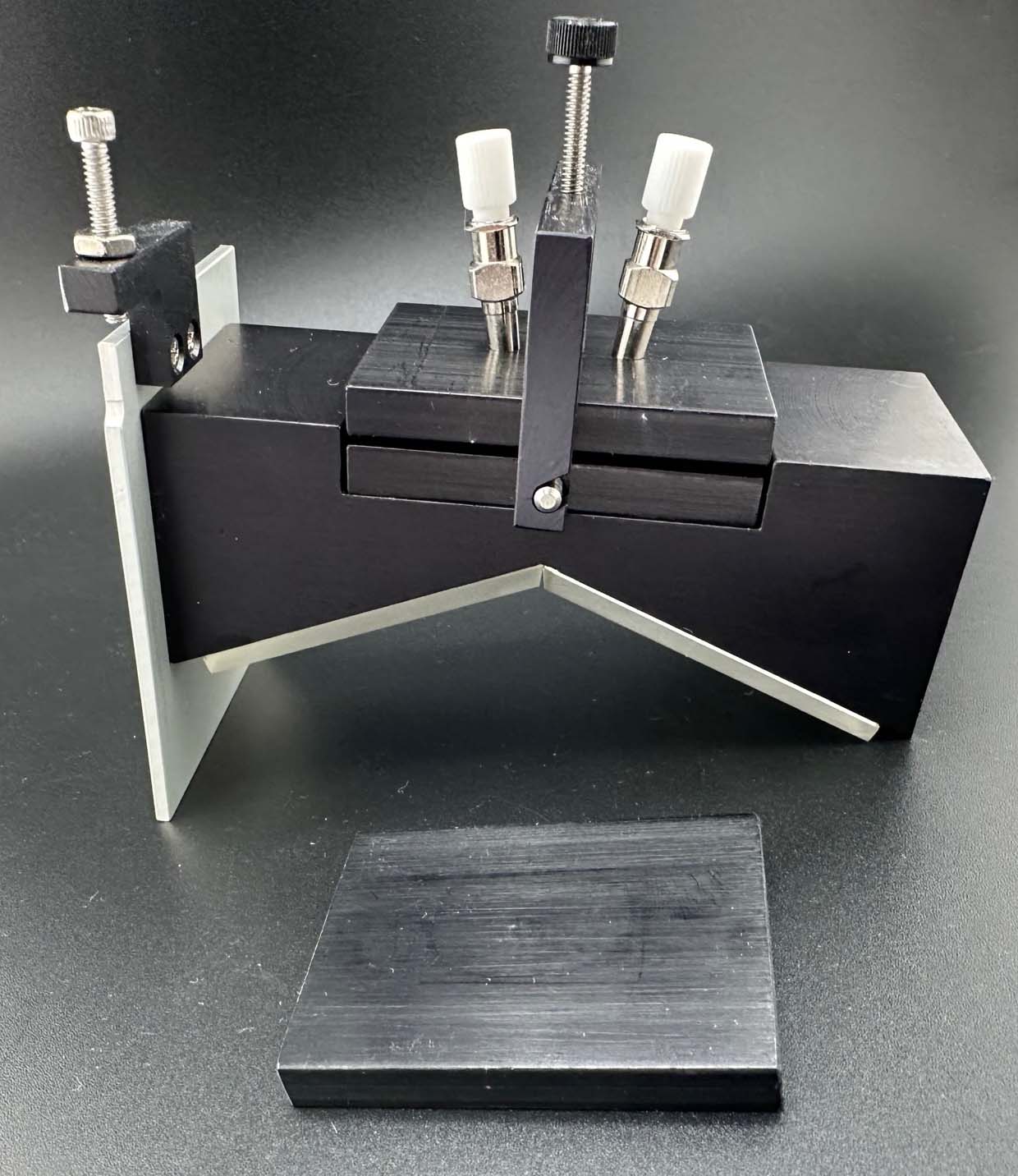Description
Single Reflection Prism Cell includes:
Transfer optic
One Single Reflection ZnSe prism (45°)
Flow-through plate
Pressure plate
Infrared Spectroscopy (IR) is one of the most descriptive tools available to the analytical organic chemist both for qualitative identification and quantitative determination of single and mixed components. Classically, most samples have been prepared for scanning by transmission, where the thickness becomes a very critical factor in the quality of the final spectrum. If the sample is too thick, it is common to lose bands from over absorption. If the sample is too thin, noise generally overlaps the actual sample peaks.
The material typically used in IR work is based on hydroscopic salts, such as NaCl and KBr, which require that the sample be absolutely dry or the sample will fog the salt and ruin the data. The applications group and design engineers at Buck have perfected the use of an accessory called the Single Reflection Prism Cell to eliminate virtually all of the problems previously encountered in IR sample preparation.
This device uses an inert Zinc Selenide crystal (ZnSe) that is impervious to dilute acids & alkalis briefly, and all solvents. A prism of this material is placed over a simple mirrored holder that directs the IR energy up to one angled face of the prism, which then directs the beam up to the horizontal face of the crystal. Anything in contact with the face of the crystal will absorb some of the IR beam energy by the process known as Attenuated Total Reflection (ATR). This in turn generates an absorbance spectrum. For single beam instruments, like the Buck M530, a background reference scan is first made of the clean, empty crystal. The sample is then deposited on the surface as a cast film from a solvent or smear, or simply placed on top. A sample scan is made, and the 2 scans are ratioed to create a typical IR spectrum.
After the scan is completed, the ZnSe crystal is quickly rinsed off with water or solvent, dried with a clean tissue, and then replaced for the next sample.
The ease-of-use, the data precision, and the rapid throughput of sample runs make the PLC-11M an ideal tool for the QC environment, the research lab, and for the beginner.


Figure 1 shows how simple and efficient the Buck Prism Cell works.



